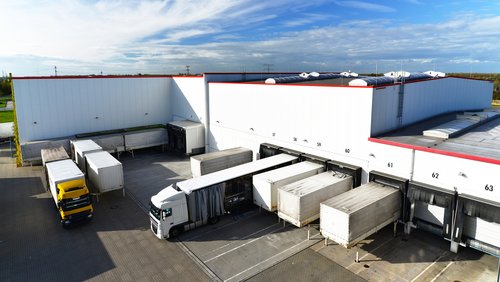The EU has set legally binding targets for climate-neutrality by 2050. To succeed in the transition to a low-carbon economy, companies need to continuously develop new and improved climate-friendly technologies, and to adopt or move towards low-carbon business models.
Financing the Sustainability Agenda

The EU has set legally binding targets for climate-neutrality by 2050. To succeed in the transition to a low-carbon economy, companies need to continuously develop new and improved climate-friendly technologies, and to adopt or move towards low-carbon business models.
This will require investments in digital technologies, automation and AI, as well as stable supply chains, all of which will need to be consistent with the EU taxonomy for sustainable activities. To succeed in decarbonising the economy, it is estimated that the EU will have to invest between €758 and €1055 billion per year until 2050 in the industry, energy, transportation and building sectors. Financing the necessary innovations and investment volumes is challenging due to tighter banking regulations, increased bureaucracy for loan applications and portfolio reallocations away from certain industries, as well as government and corporate debt levels that might become unsustainable.
How these immense volumes of investment are financed is particularly relevant to the successful mastering of these structural changes. But while the EU has developed a green bond framework for the financing of decarbonisation, a large part of the corporate sector has no access to this financial instrument. SMEs lack access to bond market investors since the issuing limits are too large for these businesses and bond investors are not interested in trading in small lot sizes. SMEs therefore depend on bank financing. However, bank financing will become more restrictive, as banks have to raise their equity capital to meet the requirements of the newest bank regulation package, known as Basel 4. McKinsey & Company estimates that banks will require €120 billion in additional capital to be ready for the implementation of the new bank regulations, while the German Economic Institute estimates that EU banks will need to expand their capital base by a further €276 to €384 billion until 2030 to finance decarbonisation. Thus, freeing up bank equity capital for new SME loans is important, as is capital market investors embracing SME finance.
The administrative burdens for SMEs when applying for finance have increased due to sustainability reporting, which may discourage enterprises from applying for loans. Moreover, banks and investment companies have already started to decarbonise their loan and asset portfolios, that is, they are reallocating their portfolios away from carbon-intensive sectors. This could lead to financing problems for carbon-intensive SMEs that would like to invest in climate-friendly technologies. For successful structural change that promotes the decarbonisation of companies and prevents SMEs from leaving the market, the ability to match SMEs with appropriate funding banks has to be preserved during the transition. The right framework conditions are therefore needed for the financial sector and the real economy so that investments and innovations can be financed. Keeping corporate and government debt at a sustainable level is important during the decarbonisation process, since a large volume of the needed investments will have to be financed by debt instruments
Financing the Sustainability Agenda

More on the topic

Due Diligence - Effect of Supply Chain regulation: Data-based results on the effects of the German Supply Chain Act
After the agreement of the European Parliament and the Council of the EU in December 2023, a few formal steps remain to introduce the Corporate Sustainability Due Diligence Directive (CSDDD).
IW
Green Nudging – a key against littering?
The demand for cleanliness in cities is increasing: "Littering" - the illegal littering of public spaces - does not only cause costs for the environment and society, but also has significant financial consequences through increased cleaning costs.
IW